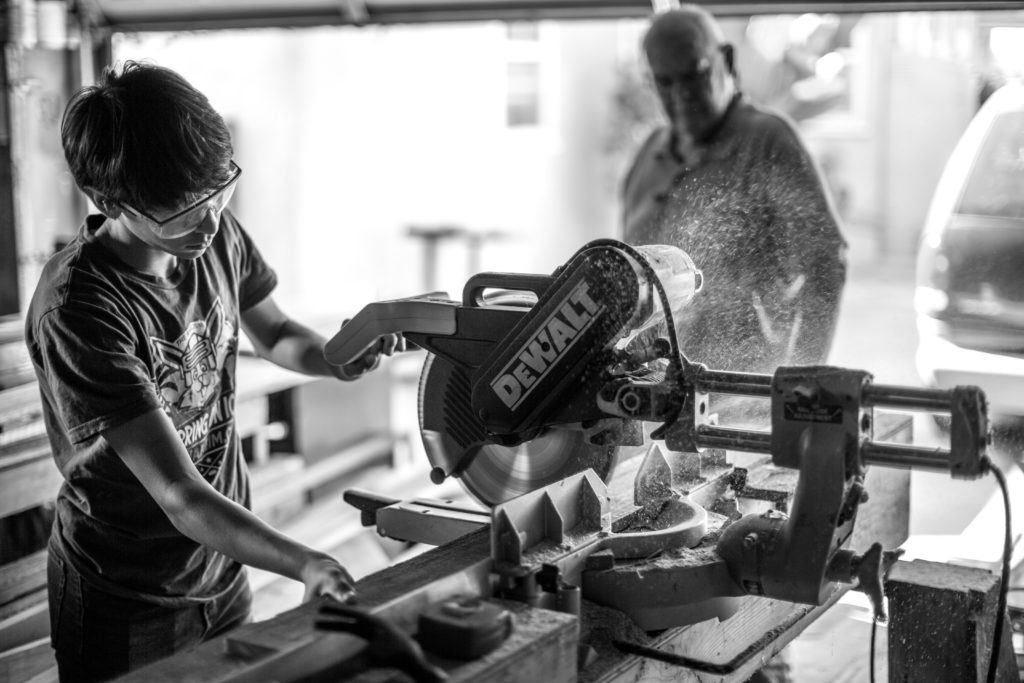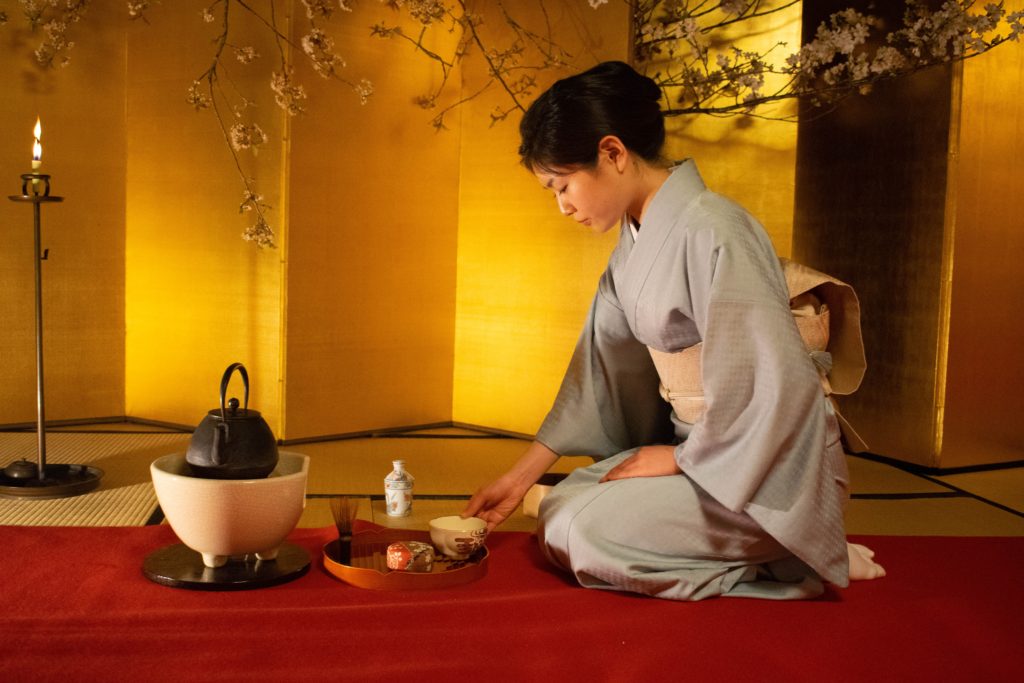What is mastery? Mastery is the ability to understand something to the level in which not only can you teach others, but you are able to innovate on that one thing and grow that knowledge beyond what came before you.
It is like getting a PhD versus just a master’s degree. A master’s degree allows you a high level of competence, but a PhD gives you the ability to take that knowledge to something new.
How does one obtain mastery? There are many ways to obtain mastery. All of it requires hard work, discipline, and focus. The fastest way, by far, is through a mentor and submitting yourself as a student to somebody who is a thousand times better than you.
I remember the first time I deployed to a foreign country for war. I needed to master a particular skill for my career field, but I wasn’t very good. My new deployment boss was a master of the craft. I sat next to her and asked her to show me everything she could. Because I did that, I got up to speed very fast and even surpassed those who have been doing the job for years.
You can collapse training times from years to months; and from months to weeks; by becoming a student to someone who has mastered the craft.
We do not go around with a name tape on our chest that says “Master”. Being a master means being accountable for the body of knowledge and skills that they are a master of. Like the master of a dojo. They are the one’s in charge of the school and have the responsibility to pass down their knowledge through training.
The Five Steps to Becoming a Master

STEP 1. The first step of becoming a master is understanding that you are not the master. So many people are willing to go through life as if they have obtained all the competency they need and they do not seek to learn anymore. This first step is getting the self-awareness that you need to become a student, and that you need someone, a mentor, to teach you everything you need to know.
Before there were schools and colleges, the only way to learn a trade was by becoming an apprentice to a master. That meant you were going to work with somebody who’s highly skilled in whatever it was until you could do it on your own.
STEP2. The second step to be a master is to be coachable. Just because you recognize in yourself that you do not have the knowledge you require; that doesn’t mean that you accept the teaching from someone. To be coachable means completely submitting to the other person’s way of doing things and doing it their way.
Until you achieve some level of competency to make it your own. You can’t just leap out and make it your own first, because you don’t know anything yet. Painters of the past, when they trained their apprentices, would have their apprentices begin with just using a dry brush copying the strokes of paintings that the master had painted.
STEP 3. The third step is to work, work, and more work. We value how hard we work on ourselves. We get degrees, certifications, and achievements to measure the long hours and dedication to our craft.
Back to our story of the apprentice painter. Eventually the apprentice would be allowed to wet the brush to see how the strokes form. As their skills improve after many years of work, they will be allowed to paint over the master’s works. Once they understand the painting process, they’re able to go to a blank canvas and copy the master’s work. The apprentice would become the master by learning, by repeating, and by understanding what the master had done; at that point they’re able to make it their own.
STEP 4. The fourth step on your path to mastery, you teach it to others. In fact, the best way to gain real competency in a skill or knowledge is by attempting to teach it. When you do that, you have to distill what you understand into small enough bites size bits of information so that you can pass it on to someone else. This process forces you to understand the information on a whole new level.
STEP 5. And finally, the fifth step is to take your discipline and innovate it by adding to the craft’s knowledge. You develop a new welding technique. You find a better way to hammer nails into wood. You find a new way to teach complicated topics. You become the master when you create something new for your craft
Once you get to a state of mastery, the process of mastering something allows you to master other things easier and faster. So mastery itself becomes a skill.
What Does it Mean to be a Master.

A master is best aligned with the term leader. The person that everyone is looking towards for knowledge, insight, and leadership for that particular thing. Of course, being a master of carpentry does not mean you’re necessarily a master of welding. It does mean you are able to master wielding, because you have the skills to master anything.
Mastery is most aligned with leadership because once you obtained the level of master, you’re now innovating and leading that knowledge and skill.
It is very hard to be good at something without being competent in it. So as you obtain mastery of the craft, you have to internally become more competent.
Competence is our understanding of a body of knowledge. It is also our ability to continuously learn about that body of knowledge and there will always be more to learn. It’s also the process in which we continuously learn so that we can use our competency to solve bigger problems.
A master looks at a problem more than just what is presented. A master is able to see the context of the problem and not just the symptom. For instance; if there is a crack in a dam, the first instinct is to just repair it and move on. But a master will realize that the environment is the problem and not the crack. The crack is just a symptom of a much larger problem.
What is Self-Mastery?
The first thing someone needs to master before they master their craft is themselves. Self-mastery is the cornerstone of development because it will give you the discipline to persevere when things get hard. The skills developed doing the hard things even when you don’t want to, build the foundation to master the craft you chose. If you master yourself, you can master anything.
One of the biggest drivers of human behavior is a progress bar. We love seeing it. We love feeling the progress of accomplishing something when we build profiles for our social media, in the video games we love, when our grades go up from C up to A, graduating first grade through 12th, etc. Even birthdays are a form of marking our level every year.
Marking progress helps us stay on track to develop the skills in the things that we want to master. As we progress through each of the five stages we get a sense of accomplishment.
Failing is learning.

To better understand the skills required and the knowledge to obtain mastery, we have to fail to be able to learn something new. Everytime we accomplish something, we might have learned a little, but never as much as if we had to recover from a failure.
We had to fail first to realize we don’t have the knowledge or skill we need. Then when we go back to learn what we were missing and come back with success. Not only do we develop some mastery, we also build our self-efficacy.
Self-efficacy is developed by not quitting. As you stretch out and begin to get those friction points and fail. You had to go back, review what you did wrong, and develop the skills and knowledge to be successful the next time.
So as you’ve leveled up your ability to solve that problem, you’ve also gained more self-efficacy, which is the opposite of self doubt, because now, you know, you can do more than what you’ve done before.
Oh, and as a good friend pointed out. You don’t always need to be the one to fail to be able to learn from failure. Many people have given us a gift of telling us of their failures in books, articles, videos, and podcasts. We can learn from them and allow their failures to be launching pads for our success.
Story Time.

In China, there was this tea master, which meant that he spent his entire life mastering the tea ceremony.
One day, a rude samurai walked past him as he stood up with a tray of tea. The tea master turned and crashed into the samurai, spilling the tea all over him. The samurai, enraged, challenged the tea master to a duel the next day. The tea master was flabbergasted and knew that tomorrow he would die.
So he asked his friend, who was also a samurai, for advice, “what can I do? This guy challenged me to duel. I’m going to die tomorrow.”
His samurai friend asks, “what can you do?” The tea master replies, “I poor tea.”
So the samurai tells him to pour him some tea. With pure focus and intent, he makes the tea. The entire tea ceremony is done flawlessly. Afterward, his samurai friend says, “hold the sword with the same focus as you hold the kettle.”
The next day the samurai met up with the tea master and the samurai swore, “I’m going to kill you”
The tea master unsheathed his sword and held it like his friend suggested and waited. The samurai, realizing that he was now confronting a master, backed down, apologized, and walked away. A master knows a master.
Vincent van Gogh is quoted. “If one is master of one thing and understands one thing. Well, one has, at the same time, insight into an understanding of many things.”

